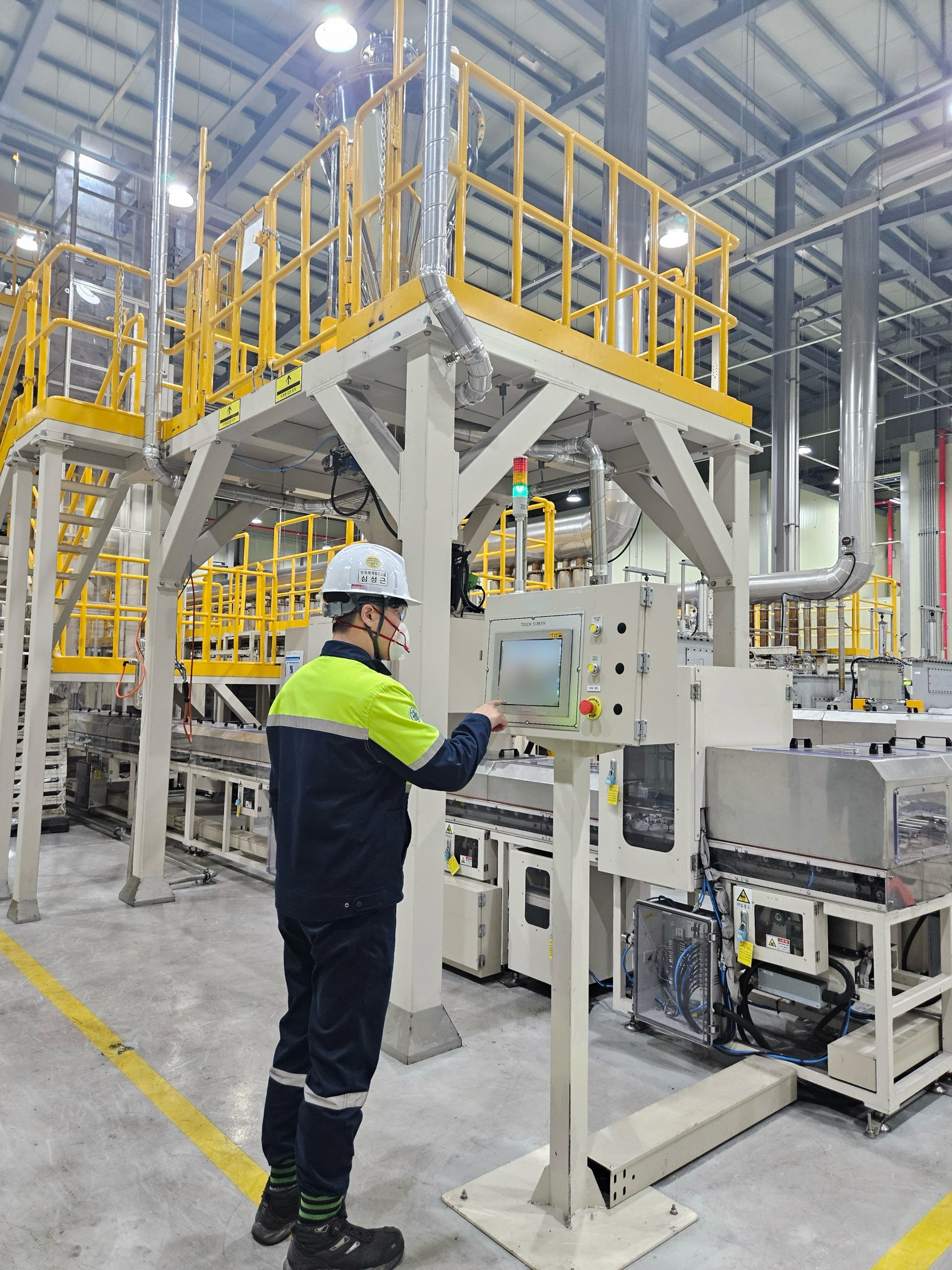Joint development with global automakers and battery companies achieved successful pilot production last year; pursuing mass production technology this year to secure large-scale orders
Set to be a game-changer in entry-level and standard EV markets being encroached by LFP… GM and Ford successively announce official adoption of LMR batteries
33% higher energy density compared to LFP provides driving range advantage, with high post-use recycling value expected to rapidly replace the market
Feasible to utilize existing NCM cathode material production facilities, enabling rapid market entry
POSCO Future M has completed the development of LMR (Lithium Manganese Rich) cathode materials, which will serve as a game-changer in the entry-level and standard electric vehicle markets, and is now moving forward with securing mass production technology.
Global automakers have recently been drawing market attention by successively announcing plans to launch electric vehicles equipped with LMR batteries. On the 13th, GM officially announced that it would launch electric vehicles using LMR batteries starting in 2028. Ford also revealed plans for LMR battery commercialization before 2030 and disclosed that it is currently conducting pilot production of second-generation LMR batteries.
LMR batteries are rapidly emerging as next-generation batteries as they can compete on price with LFP batteries that Chinese battery companies are primarily producing while offering superior performance.
LMR batteries can enhance price competitiveness by significantly reducing the expensive use of cobalt and nickel, while increasing the use of inexpensive manganese. Considering that LFP batteries are difficult to recycle, LMR batteries with high lithium recovery rates can have economic advantages as well.
Additionally, they can achieve 33% higher energy density compared to LFP batteries, securing greater capacity, and are expected to rapidly replace LFP market.
Recognizing these advantages, POSCO Future M selected LMR cathode materials as a new flagship product that will be a game-changer in the entry-level and standard electric vehicle markets. The company has been jointly developing commercialization technology with global automakers and battery companies since 2023.
POSCO Future M’s Technology Research Institute consolidated research capabilities with POSCO Holdings’ POSCO N.EX.T Hub, which oversees POSCO Group R&D, and achieved successful pilot production last year through continuous improvements in energy density, charge-discharge performance, and stability. The company plans to secure mass production technology within this year and actively pursue large-scale contract orders.
Recently, the company took a significant step toward mass production readiness by obtaining approval after conducting due diligence in the areas of equipment operation, safety, and the environment, as required for LMR production at the request of customers. POSCO Future M plans to establish mass production capabilities by utilizing existing NCM cathode material production lines without large-scale new investments, enabling timely product supply according to customer requests.
Young-jun Hong, Director of POSCO Future M’s Technology Research Institute, stated, “LMR cathode materials have long been recognized for their potential but faced commercialization difficulties in terms of cycleability, and we have made significant progress through research and development,” adding, “Based on solid trust relationships, we are on the verge of launching products that combine affordable prices with high energy density through collaboration with customers.”
Following this LMR cathode material development, POSCO Future M plans to expand its LMR product portfolio from entry-level and standard to premium and large EV markets by developing next-generation LMR cathode materials with further enhanced energy capacity in collaboration with POSCO Holdings’ POSCO N.EX.T Hub.

▲POSCO Future M researcher is testing the production of LMR cathode material products at Sejong Institute’s pilot plant.
